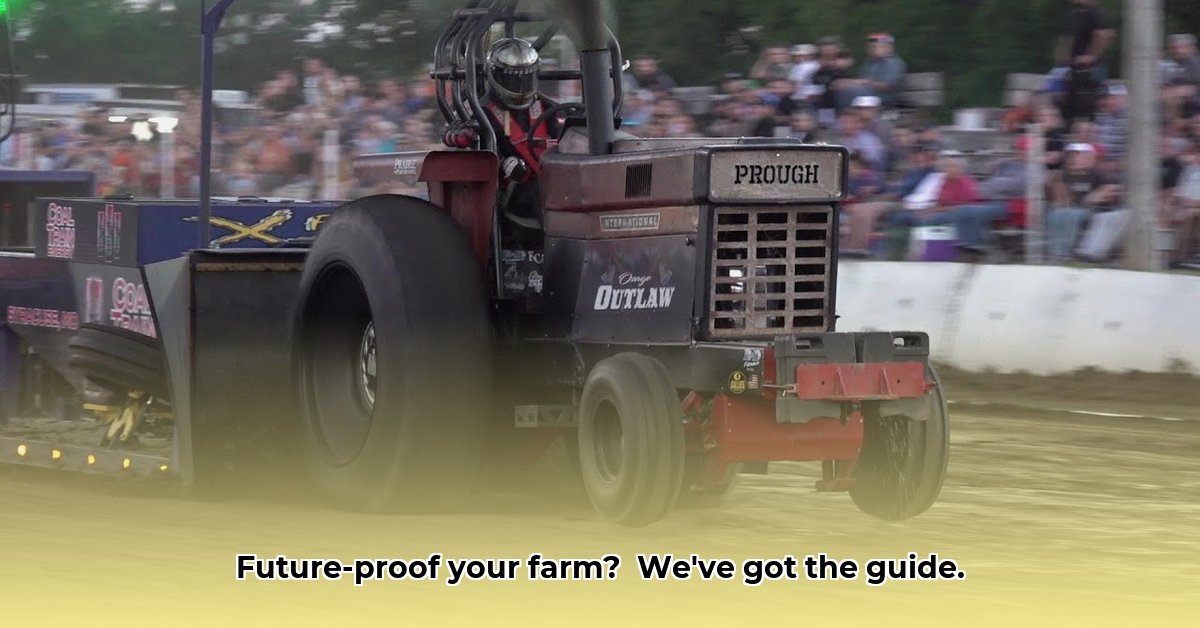
Louisburg Truck and Tractor: Maximize Your Farm's Potential
Preparing your farm for planting season requires more than just planting seeds; it necessitates a proactive approach to equipment maintenance and sustainable practices. Louisburg Truck and Tractor understands this, offering comprehensive support to farmers seeking to enhance operational efficiency and long-term profitability. This guide provides a step-by-step plan for pre-season equipment preparation, incorporating sustainable practices and exploring long-term investment strategies. By following these guidelines, farmers can significantly reduce downtime, improve yields, and build a more sustainable and profitable farming operation. For upcoming tractor shows, check out this helpful resource.
Pre-Season Equipment Checklist: A Foundation for Success
A thorough pre-season equipment check is paramount. This isn't just about avoiding breakdowns; it's about maximizing efficiency and ensuring a smooth harvest. The following checklist, broken down by equipment type, will help ensure your machinery is ready for the demands of planting season. Remember, a small investment in preventative maintenance can save significant costs in repairs later on.
Tractors: Maintaining Your Farm's Workhorse
Fluid Check: Begin by inspecting all fluid levels: engine oil, transmission fluid, hydraulic fluid, and coolant. Low levels significantly impact performance and can lead to costly breakdowns. Refer to your owner's manual for recommended levels and perform a complete fluid change if needed.
Belt Inspection: Carefully examine all belts for wear and tear, including cracks or fraying. A broken belt can halt operations entirely. Replace any damaged belts promptly.
Tire Pressure: Under-inflated tires reduce fuel efficiency, impact traction, and can damage your equipment. Check and adjust your tire pressure according to the manufacturer's recommendations, ensuring optimal performance and longevity.
Battery Test: Test your tractor battery's charge. A weak battery can leave you stranded. Consider carrying a jump starter for emergencies, and replace the battery if needed.
Safety Systems Check: Conduct a thorough safety check, ensuring brakes, lights, and all safety features are functioning correctly. Your safety and the safety of your crew is paramount.
Planters and Other Implements: Precision Planting for Optimal Yields
Calibration: Precise planting is crucial for high yields. Carefully calibrate your planter to ensure even seed distribution, maximizing the potential of each seed and minimizing waste. Consult your equipment's manual for detailed instructions on calibration procedures.
Component Inspection: Closely examine all components, including seed plates, fertilizer tubes, and markers, for signs of wear and tear. Replace any worn or damaged parts to ensure optimal functionality.
Thorough Cleaning: Clean all seed hoppers and fertilizer tanks thoroughly to remove debris and prevent contamination. A clean system ensures healthy plant growth and consistent results.
Sharpness Assessment: Sharpen disc openers, coulters, and closing wheels, ensuring optimal seed placement and minimizing damage. Sharp tools are essential for efficient planting and healthy crop development.
Sustainable Practices: Farming for Profit and the Planet
Sustainable farming practices are not merely environmentally responsible; they are economically sound. Incorporating these practices yields long-term benefits, enhancing both your farm's profitability and its environmental footprint.
Fuel Efficiency: Implementing fuel-efficient practices such as maintaining proper tire pressure, performing regular maintenance, and optimizing equipment operation will result in significant fuel cost savings over time.
Eco-Friendly Lubricants: Utilize biodegradable lubricants to minimize environmental impact without compromising performance. Many manufacturers offer high-quality, eco-friendly options.
Waste Reduction: Preventative maintenance drastically reduces the need for frequent replacements, minimizing waste and saving money on parts.
Long-Term Investment Strategies: Building Your Farm's Future
Investing in durable, high-quality equipment offers significant long-term benefits:
| Investment | Short-Term Costs | Long-Term Benefits |
|---|---|---|
| Fuel-Efficient Equipment | Higher initial purchase price | Reduced operating costs, lower fuel bills, smaller carbon footprint |
| Precision Farming Technology | Software, sensors, and training | Optimized resource use, higher yields, less waste, improved efficiency |
| Durable, High-Quality Equipment | Higher initial purchase price | Reduced maintenance and repair costs, longer lifespan |
Louisburg Truck and Tractor can assist in exploring financing options, such as leasing or farm credit programs, and government subsidies available to help offset the costs of sustainable upgrades. The long-term ROI, both financially and environmentally, is substantial.
Partner with Louisburg Truck and Tractor
Louisburg Truck and Tractor isn't just an equipment provider; they're your partners in success. They offer sales, service, parts, and tailored solutions to optimize your farm's efficiency and sustainability. Contact them today to discuss your needs and explore custom maintenance plans. Proactive maintenance and sustainable practices are key to building a successful and thriving farm.